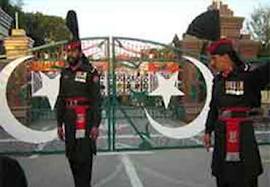
NEW DELHI, Aug 15 — More than 250 Pakistani Hindus have arrived in India over the past two weeks bearing tales of religious persecution, according to Indian border officials, fueling perceptions of growing discrimination against minorities in Pakistan.
The Pakistani Hindus, who came by road and rail with valid pilgrimage visas from Sindh, Baluchistan and Punjab provinces, have reported incidents of kidnapping, looting and forced religious conversion, the officials said.
Pakistan has 2.7 million Hindus in a majority-Muslim population of 180 million. They represent those who chose to stay after the sectarian blood bath that accompanied the 1947 partition of the subcontinent at the end of British rule.
The Pakistani Hindus’ allegations of persecution and expressed desire to stay in India pose a diplomatic quandary for the New Delhi government: Should India welcome them and open the floodgates? Or should it stay aloof, treating this as an internal Pakistani matter — and shielding itself from allegations of Muslim mistreatment in India.
“As far as we know, the families have come on a pilgrimage. So far, no family that is based in Pakistan has approached us for asylum,” Preneet Kaur, India’s deputy foreign minister, told the Headlines Today news channel in New Delhi on Tuesday.
Kaur noted that India and Pakistan had agreed in 1972 not to interfere in each other’s internal affairs. But she added, “However, we do request Pakistan, on humanitarian grounds, to look after the interests of minorities.”
India does not have a national refugee law; it deals with arrivals from neighboring countries on an ad hoc basis. Thousands of Pakistani Hindus who have come here in the past two decades have still not received Indian citizenship.
But the country may be unable to maintain that detachment for long, in view of the steady stream of Pakistani Hindus who say they are being harassed by new Muslim fundamentalist groups in Pakistan’s Sindh province.
“They barge into our homes in broad daylight, snatch jewelry from the women, money from our shops, and kidnap Hindu girls and convert them to Islam,” Mukesh Kumar Ahuja, a young Hindu from Pakistan, told Indian reporters in the northern state of Punjab. “We want India to let us stay and ease visa rules for our relatives who are still in Pakistan.”
Tejinder Goggi, a hotel owner and peace activist in Punjab, said he saw at least 100 Pakistani Hindus arrive last week with bedding, pots and pans stuffed into jute sacks and cardboard cartons.
“They are worried about their daughters because 20 girls were kidnapped and married to Muslim boys in the past year,” Goggi said.
An immigration officer said that only half of those who have come to India in the past year have returned to Pakistan.
“They come for pilgrimage on a 30-day visa, and they keep extending it,” the officer said, speaking on the condition of anonymity to discuss the politically sensitive issue. “They produce medical certificates to say they are ill, or report a marriage or death in the family.”
On Monday, several Indian lawmakers raised the issue in Parliament and urged the government to take it up with Pakistan.
“If persecuted Hindus don’t come to India, where will they go?” asked Prakash Javadekar, spokesman for the Hindu nationalist opposition Bharatiya Janata Party.
Hindu protests have been growing in Pakistan. Last week, Pakistani President Asif Ali Zardari set up a three-member panel to address the Hindus’ grievances, and Interior Minister Rehman Malik has promised to examine the situation. “The government will first look into the matter and then allow them to leave Pakistan,” Malik said of those seeking visas. He did, however, question why India had given such a large number of visas to the Hindus.
Not all Pakistani Hindus want to leave. “I was born in Pakistan,” Kanhaiya Nagpal, a retired professor, said in a telephone interview from Karachi. “I like to live here. This is my country.”
Nagpal said he had participated in a demonstration organized by several Hindu groups Monday to protest harassment. But he added: “The solution is not to run away. If the rule of law is followed in Pakistan, then everything will be all right.”
Nisar Mehdi in Karachi contributed to this report.


Some really nice and useful information on this internet site, too I think the style contains good features.